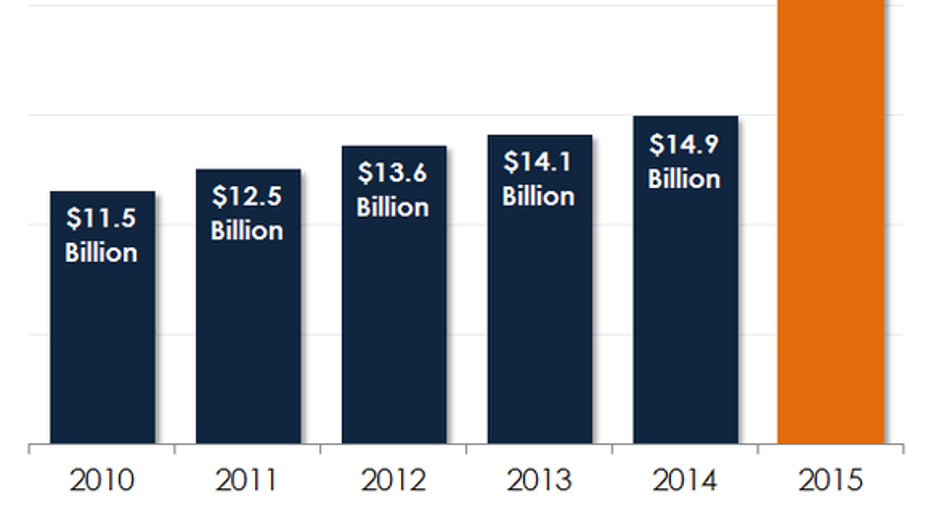McDonald's Debt Increased by 62% Last Year. Should Investors Be Worried?

A recently remodeled McDonald's. Image credit: McDonald's.
Debt is a necessary and important part of business, but it can also spell trouble if taken to the extreme. It's for this reason that McDonald's rapid increase in debt last year caught my attention as I read its latest annual report filed with the Securities and Exchange Commission.
McDonald's finished last year with 62% more debt than it had at the end of 2014. Its debt load increased from $14.9 billion all the way up to $24.1 billion. The added leverage led the ratings agencies to lower McDonald's credit rating.
Data source: McDonald's 2015 10-K, page 12.
The rapid increase is part of McDonald's turnaround plan, which was inaugurated last year with the election of a new CEO. The company announced the initial steps in May, with a worldwide restructuring of its operations taking place in July.
Previously, McDonald's was organized according to geography, with four business divisions corresponding to the U.S.; Europe; Asia/Pacific, Middle East and Africa; and Other Countries & Corporate, which included Canada and Latin America. But beginning in July, its segments now correspond to opportunities for growth.
There are four divisions under the new structure: the United States, international lead markets, high-growth markets, and foundational markets and corporate. "This new operating structure is designed to sharpen the Company's focus on the customer, drive greater accountability, and remove distractions and bureaucracy," McDonald's noted in its 2015 10-K. "Management expects the new structure to enable faster decision-making and an increased ability to move proven initiatives quickly across markets."
While there were unquestionably costs associated with this change, that's not where McDonald's added debt came from. It derived instead from the company's decision to drive value through increased leverage and returning more capital to shareholders.
As the company explained:
Suffice it to say it isn't a coincidence that the increase in the amount of capital that McDonald's is planning on returning to shareholders ($10 billion) corresponds to the added debt burden ($9.2 billion).
For shareholders in the company, it's important to note that there are risks associated with the move. "Implementing those actions will intensify the existing risks we face in our business, including risks associated with franchising and risks associated with our credit ratings," McDonald's notes. As I already noted, moreover, the last one has already come to fruition.
At the same time, however, it's equally worth observing that McDonald's has substantial cash flows that are more than sufficient to absorb the heightened burden. Cash provided by operations totaled $6.5 billion in 2015, while its interest expense added up to only $638 million. On top of this, given the unprecedentedly low interest rates prevailing right now, if there was ever a time for a company to add leverage, now would be it.
The article McDonald's Debt Increased by 62% Last Year. Should Investors Be Worried? originally appeared on Fool.com.
John Maxfield has no position in any stocks mentioned. The Motley Fool has no position in any of the stocks mentioned. Try any of our Foolish newsletter services free for 30 days. We Fools may not all hold the same opinions, but we all believe that considering a diverse range of insights makes us better investors. The Motley Fool has a disclosure policy.
Copyright 1995 - 2016 The Motley Fool, LLC. All rights reserved. The Motley Fool has a disclosure policy.



















